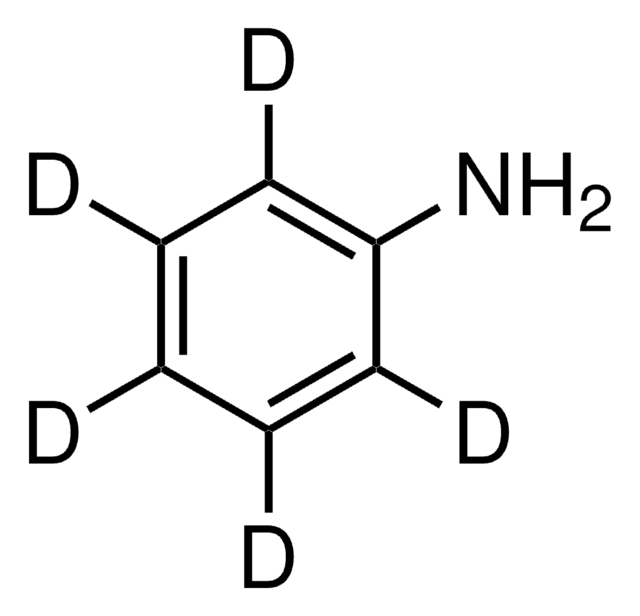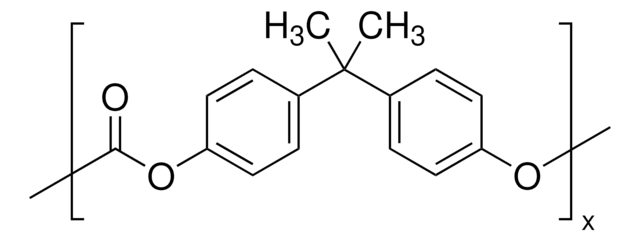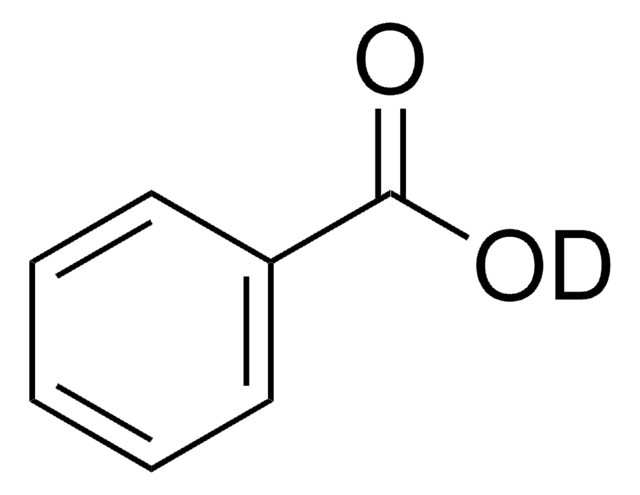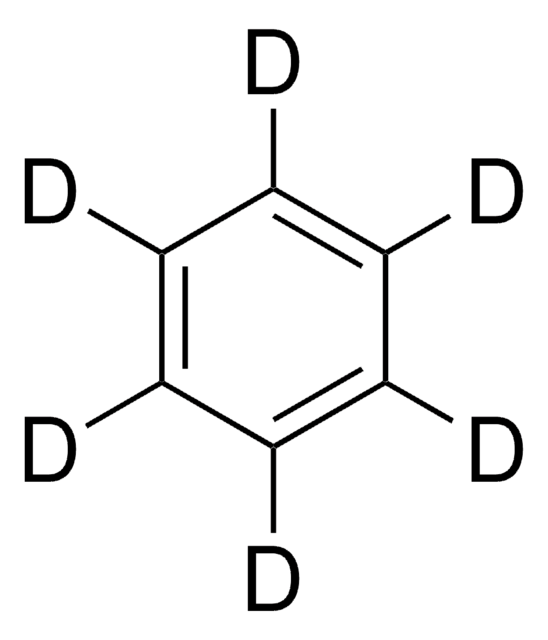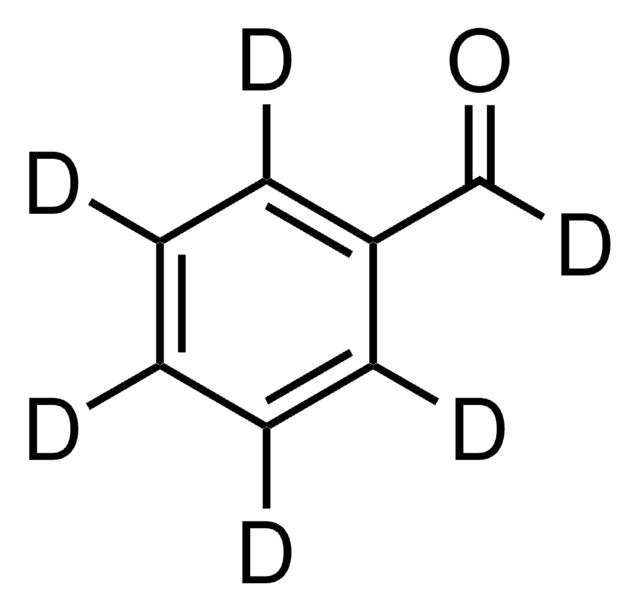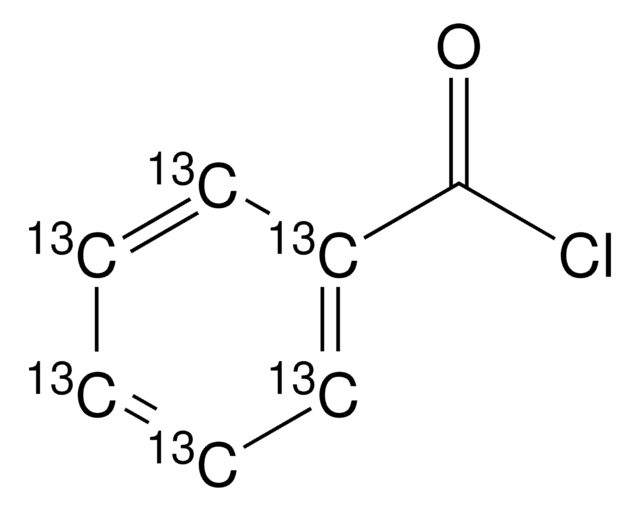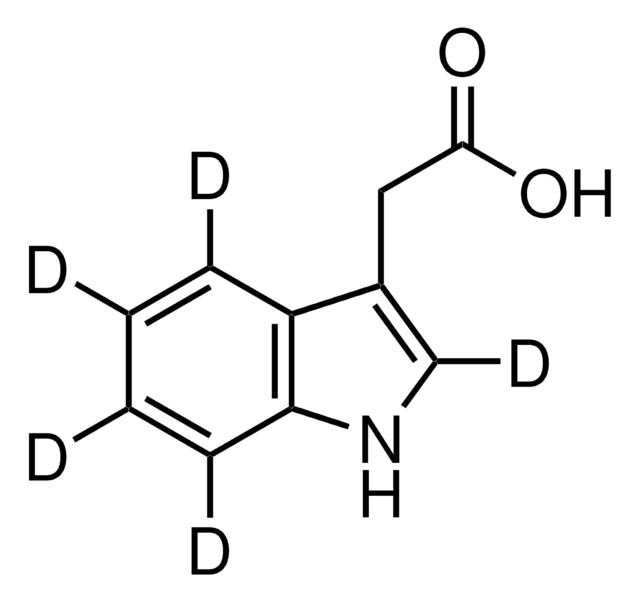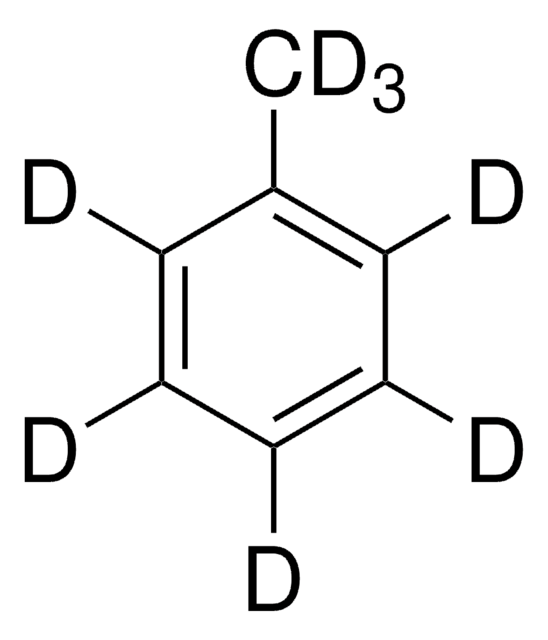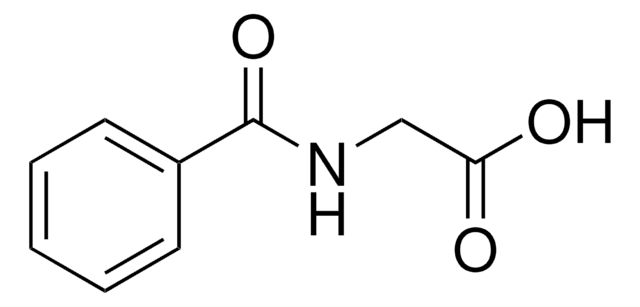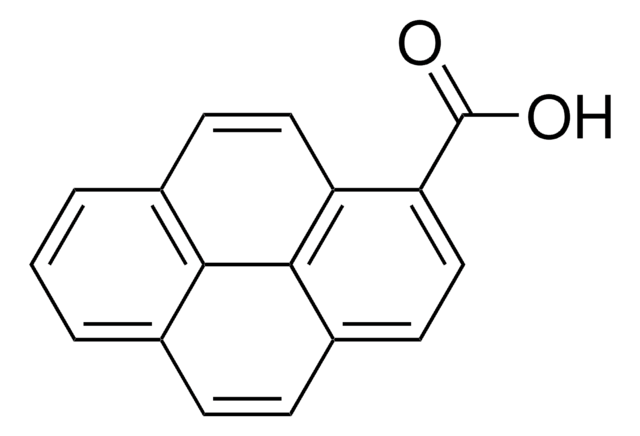217158
Benzoic acid-2,3,4,5,6-d5
≥99 atom % D, ≥99% (CP)
Synonym(s):
Benzoic-d5 acid-(phenyl-d5), Deuterated benzoic acid
About This Item
Recommended Products
isotopic purity
≥99 atom % D
Quality Level
Assay
≥99% (CP)
form
powder
autoignition temp.
1061 °F
bp
249 °C (lit.)
mp
121-125 °C (lit.)
mass shift
M+5
SMILES string
[2H]c1c([2H])c([2H])c(c([2H])c1[2H])C(O)=O
InChI
1S/C7H6O2/c8-7(9)6-4-2-1-3-5-6/h1-5H,(H,8,9)/i1D,2D,3D,4D,5D
InChI key
WPYMKLBDIGXBTP-RALIUCGRSA-N
Packaging
Signal Word
Danger
Hazard Statements
Precautionary Statements
Hazard Classifications
Eye Dam. 1 - Skin Irrit. 2 - STOT RE 1 Inhalation
Target Organs
Lungs
Storage Class Code
6.1C - Combustible acute toxic Cat.3 / toxic compounds or compounds which causing chronic effects
WGK
WGK 1
Flash Point(F)
Not applicable
Flash Point(C)
Not applicable
Personal Protective Equipment
Choose from one of the most recent versions:
Already Own This Product?
Find documentation for the products that you have recently purchased in the Document Library.
Customers Also Viewed
Our team of scientists has experience in all areas of research including Life Science, Material Science, Chemical Synthesis, Chromatography, Analytical and many others.
Contact Technical Service
